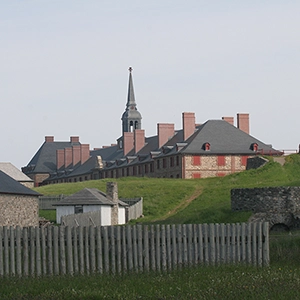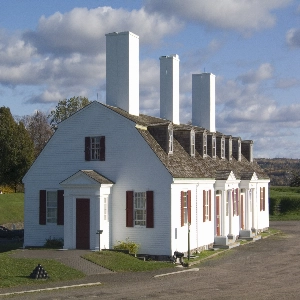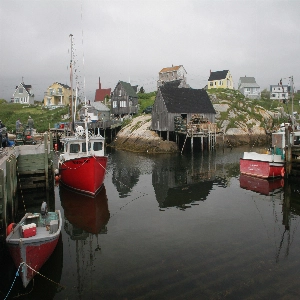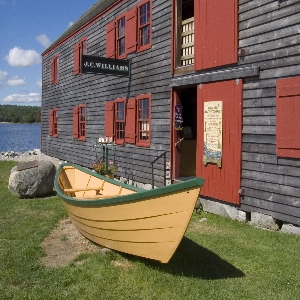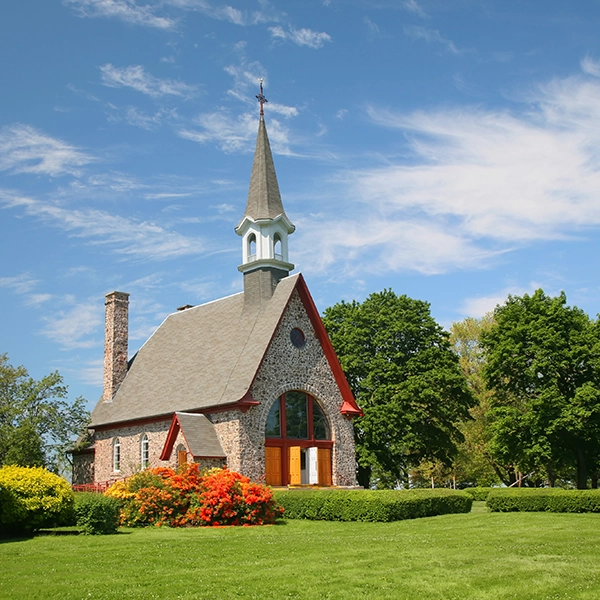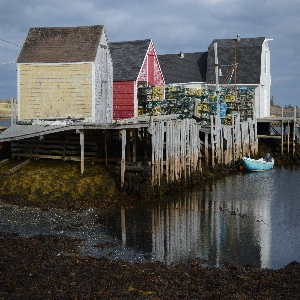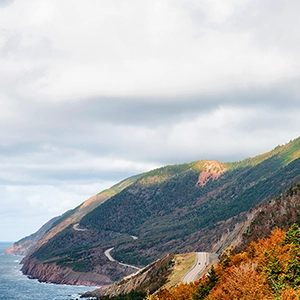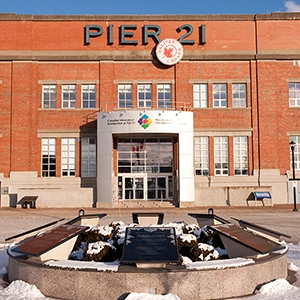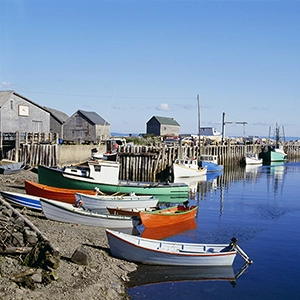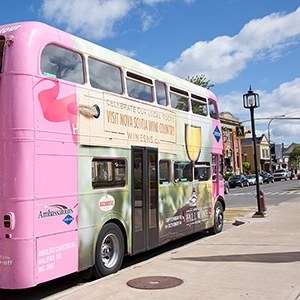Step In To The Charm Of Yesteryear At The Ross Farm Museum
Introduction to Ross Farm Museum
Nestled in the rural community of New Ross in Nova Scotia, Canada, the Ross Farm Museum offers a unique and authentic experience for visitors wanting to step back in time and explore what life was like for early settlers in the 19th century. This living history museum occupies 60 acres of picturesque farmland and is home to various heritage buildings, agricultural exhibits, and an impressive collection of animals. Through hands-on activities, interactive displays, and engaging workshops, visitors can learn about the rich history and culture of the region while having a truly memorable experience. This article will take you on a journey through the Ross Farm Museum, exploring its history, attractions, events, and educational programs.
History of the Ross Farm Museum
The Ross Farm Museum was established in 1969 to preserve and showcase Nova Scotia's unique agricultural heritage. The museum's namesake, Captain William Ross, was instrumental in establishing the original settlement of New Ross in 1816. He arrived in the region with his family and 172 disbanded soldiers from the War of 1812, and together, they began to clear the land, build homes, and establish a thriving community. The Ross family farm was originally a land grant of 800 acres, which included forests, pastureland, orchards, and fertile fields.
Today, the Ross Farm Museum boasts a collection of historical buildings, artifacts, and exhibits that tell the story of rural life in the 19th century. Many of the buildings on the property are original to the farm and have been carefully restored and relocated to the museum site. These include the Ross family's farmhouse, barn, blacksmith shop, cooperage, and more. All of these structures provide a fascinating glimpse into the daily lives and activities of the early settlers in Nova Scotia.
Heritage Buildings and Exhibits
The Ross Farm Museum is home to an impressive range of historical buildings and exhibits that showcase various aspects of rural life in the 19th century. Some of these buildings include:
The Farmhouse: The original Ross family farmhouse dates back to 1817 and has been meticulously restored to reflect the period's architectural styles and domestic life. Visitors can explore the various rooms and view artifacts, furniture, and textiles that tell the story of the Ross family and their daily lives.
The Barn: A visit to theRoss Farm Museum would not be complete without stepping into the barn, which houses a variety of farm animals, including oxen, sheep, pigs, and poultry. These animals play an important role in helping visitors understand the historical farming practices and the importance of livestock in the 19th century.
Blacksmith Shop: Visitors can watch skilled blacksmiths at work as they forge metal using traditional tools and techniques. In addition to demonstrations, the blacksmith shop displays an array of historic tools and equipment that were commonly used by blacksmiths in the past.
Cooperage: The cooperage exhibit showcases the art of barrel-making, which was an essential skill in the 19th century for storing and transporting goods. Visitors can watch demonstrations, view historic tools, and learn about the various types of barrels and their uses in the past.
Events and Seasonal Celebrations
The Ross Farm Museum hosts several events and seasonal celebrations throughout the year, offering unique experiences for visitors of all ages. Some of the most popular events include:
Winter Frolic: This annual event in February celebrates the joys of winter on the farm with activities like sleigh rides, snowshoeing, ice cutting, and blacksmithing demonstrations. Visitors can also warm up by the fire with hot chocolate and roasted marshmallows.
Heritage Day: Held in August, Heritage Day features a variety of demonstrations, workshops, and hands-on activities, providing visitors with an immersive experience of rural life in the 19th century. Activities include candle making, butter churning, and woodworking, among others.
Autumn Harvest: The changing colors of fall provide a beautiful backdrop for the Autumn Harvest event in October. This celebration includes a day of farm activities and demonstrations, including threshing, milling, and cider pressing. Visitors can also enjoy the beautiful fall foliage on a scenic wagon ride or by exploring the grounds.
Educational Programs and Workshops
The Ross Farm Museum offers a variety of educational programs and workshops for visitors who want to deepen their understanding of rural life in the 19th century. These programs cater to learners of all ages and are designed to provide a fun and engaging educational experience. Some popular programs include:
Field Trips: The museum offers guided field trips for school groups and homeschoolers, featuring hands-on activities and demonstrations that align with the provincial curriculum. Students have the opportunity to learn about topics such as agriculture, rural life, and the roles of various trades in the community.
Workshops: For adult learners, the Ross Farm Museum hosts various workshops that teach traditional skills and crafts. Examples include blacksmithing, traditional woodworking, natural dyeing, and more.
Summer Camps: Young visitors can participate in week-long summer camps that immerse them in the daily life of a 19th-century farm. Activities include caring for animals, gardening, participating in historic trades, and playing period games.
Conclusion
The Ross Farm Museum offers a unique experience for visitors of all ages to step back in time and explore the daily life of early settlers in Nova Scotia. With its historic buildings, interactive exhibits, and engaging programs, the museum provides an authentic and enjoyable learning experience that showcases the region's rich agricultural history. A visit to the Ross Farm Museum is not only a fun day out but also a valuable opportunity to appreciate and understand the past, making it a must-visit destination in Nova Scotia.
